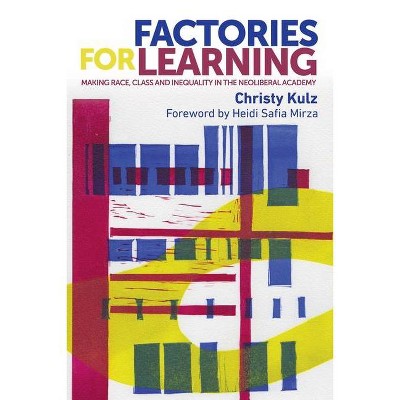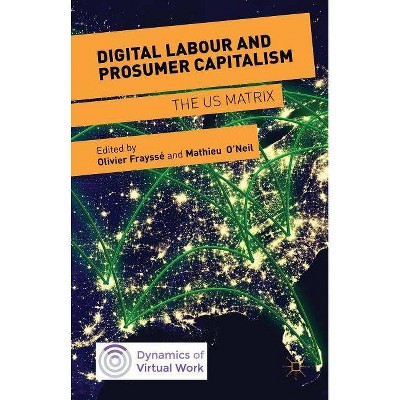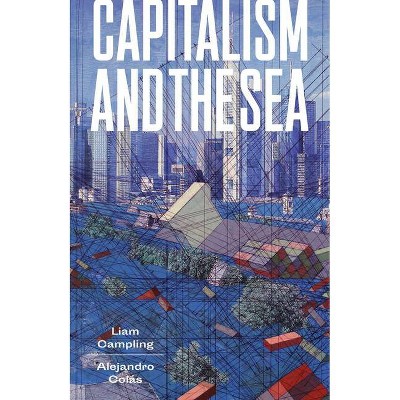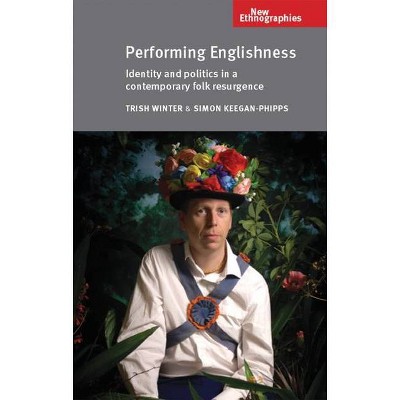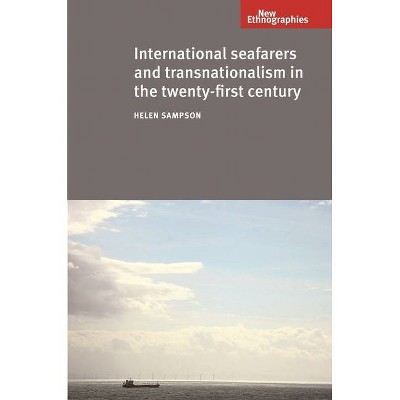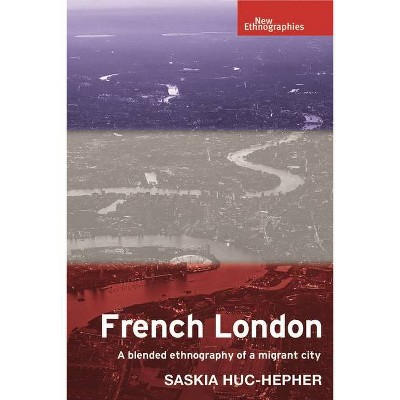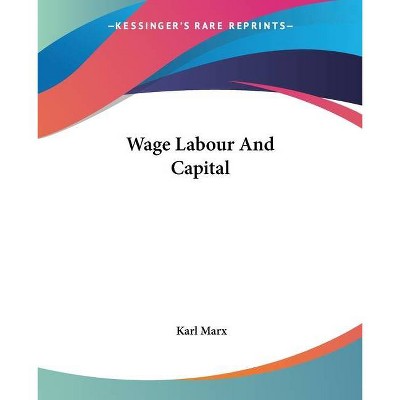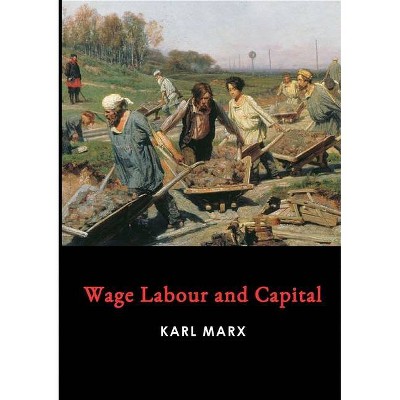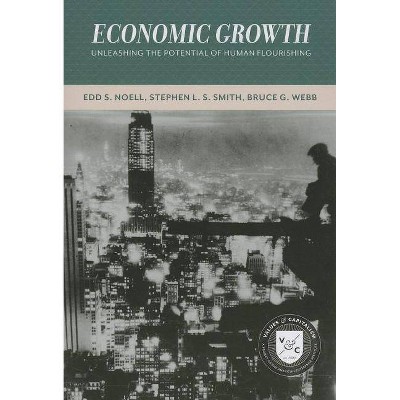Environment, labour and capitalism at sea - (New Ethnographies) by Penny McCall Howard (Paperback)
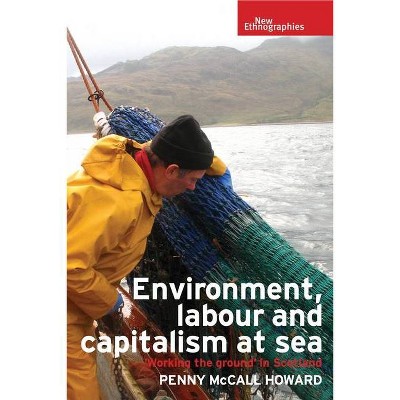
Similar Products
Products of same category from the store
AllProduct info
<p/><br></br><p><b> About the Book </b></p></br></br>This book combines phenomenology and political economy to offer new approaches for analyses of human-environment relations and technologies. It contributes to the social studies of fisheries through an analysis of how fishing practices and social relations are shaped by political economy.<p/><br></br><p><b> Book Synopsis </b></p></br></br><p>This book explores how fishers make the sea productive through their labour, using technologies ranging from wooden boats to digital GPS plotters to create familiar places in a seemingly hostile environment. It shows how their lives are affected by capitalist forces in the markets they sell to, forces that shape even the relations between fishers on the same boat. Fishers frequently have to make impossible choices between safe seamanship and staying afloat economically, and the book describes the human impact of the high rate of deaths in the fishing industry. <br /> <br /> The book makes a unique contribution to understanding human-environment relations, examining the places fishers create and name at sea, as well as technologies and navigation practices. It combines phenomenology and political economy to offer new approaches for analyses of human-environment relations and technologies.</p><p/><br></br><p><b> From the Back Cover </b></p></br></br>Winner of the American Anthropological Association's Society for the Anthropology of Work Book Prize for 2018 How do fishers extend their bodies and senses to work beneath the surface of the sea in places they cannot see, have never been, and could not survive in? And at what risk? This book explores how fishers make the sea productive through their labour, using technologies ranging from wooden boats to digital GPS plotters to create familiar places in a seemingly hostile environment. It shows how their lives are deeply affected by capitalist forces in the markets they sell to. These forces shape even the relations between fishers on the same boat. They frequently make impossible choices between safe seamanship and staying afloat economically, and the book describes the human impact of the high rate of deaths in the fishing industry. The author has carried out years of participant observation at sea in the west of Scotland; working on a trawler, living on a boat in harbours and voyaging along the coast. The book makes a unique contribution to understanding human-environment relations, examining the places fishers create and name at sea, as well as their technologies and navigation practices. Combining phenomenology and political economy it offers new approaches for analyses of human-environment relations and technologies. It contributes to the social studies of fisheries through an analysis of how deeply fishing practices and social relations are shaped by political economy. <i>Environment, labour and capitalism at sea</i> will be read by social scientists and anthropologists and also by those with an interest in maritime life.<p/><br></br><p><b> Review Quotes </b></p></br></br><br><br>As Howard makes clear capital and its drive to profit must be challenged-this book is a weapon in that fight. - Sarah Ensor, International Socialism, A quarterly review of socialist theory <br><p></p><br>How do the fishers relate to each other, their boats, their technologies, the sea, their catches? In this deeply researched book, written with an intimate feel for fishing and the sea, Penny McCall Howard answers these questions. Based on the Scottish industry, this important book shows how class<br>relations continue to shape labour, working relationships, environments and at times life and death. Few researchers hold both a 100-ton captain's licence from the US Merchant Marine and a doctoral degree; few are as at home on a fishing boat's deck as they are in a library. Penny McCall Howard<br>brings a unique blend of abilities to this compelling account of work and has produced an argument for rethinking how we understand the nature of labour in any industry and in all places. - Professor Bradon Ellem, University of Sydney Business School <br><p></p><br>Allen sets an ambitious program; fortunately, she moves through it with clarity, concision, and an unflagging commitment to evidential probity, as well as the careful contextualization of the materials she treats. She does so in part to correct what she compellingly claims are errors embedded in<br>both older and relatively recent treatments not only of the Cooke sisters but of learned women more generally. - Leah Knight, Brock University, Renaissance and Reformation, 41.3, Summer 2018 <br><p></p><br>The description of the lived experiences of the author and fishers are used to create an absorbing and, at times, moving narrativeEL.It is the ability to connect the daily lives of fishers to seemingly distant market forces that makes Environment, labour and capitalism at sea an exceptional<br>bookELThere is an incredible amount to this text that will be of relevance to those interested in global supply chains, environment labour relations, social relations of work, neo-liberalism and regulation...McCall Howard's deeply rich and confronting account of the social relations that face and at<br>times overwhelm the fishers of the west coast of Scotland needs be read by people interested in work and our collective environmental future. - Dr. Caleb Goods, Journal of Industrial Relations <br><p></p><br>This story of how livelihoods are wrestled from the sea is an anthropological first. Never before has the work of commercial fishermen been brought to life with such vividness, depth and attention to detail, or subjected to such rigorous and hard-headed analysis. - Professor Tim Ingold, Chair in<br>Social Anthropology, University of Aberdeen, UK <br><p></p><br>Environment, Labour and Capitalism at Sea unpacks the broader social forces that mediate interactions between human beings and their marine environment while simultaneously drawing out the individual stories and life histories of Scottish fishers....It is well written and emotive. The honest<br>portrayal of the suffering of conflicted fishers who struggle against forces beyond their control aids in our understanding of the root causes of environmental change and the metabolic relationship between humankind and nature. Readers who study environmental sociology, food, and agricultural<br>systems would do well to read Howard's work. - Timothy P. Clark, Human Ecology Review <br><p></p><br>This well-written and memorable account provides thought-provoking reading on an industry that is poorly understood. As such it will merit a space on the shelves of those who are interested in fishing, in ethnography, and in the human costs of capitalism. - Helen Sampson Cardiff University, <br>Journal of Royal Anthropological Institute, 24:4 <br><p></p><br>Penny McCall Howard provides us with a thoroughly engaging and sensitively written account of the multiple forces that shape fishers' lives at sea. Based on extended participant observation both on boats and on land on the west coast of Scotland, the richness of the material presented for analysis<br>reveals the quality of her fieldwork practices and the strength of the relationships she forged with fishers during that time....Howard's work represents a refreshing contribution to ethnographies of northern Scotland because it firmly dispels the tired tropes of rural idylls and bucolic landscapes<br>that have long been associated with this part of the world. - Louise Rebecca Senior, Social Anthropology <br><p></p><br>Environment, Labour and Capitalism at Sea is a remarkable work. It's a first rate piece of Marxist anthropology that puts human labor at the center of a discussion about ecology. It shows how the biodiversity crisis in the oceans is related to wider social relations, and emphasizes again how the<br>fight to prevent environmental destruction requires challenging the priorities of the system - not just changes to our diet. For radical environmentalists and Marxist ecologists this should be a required read. - Martin Empson, climate and Capitalism, June 2019 <br><p></p><br><br><p/><br></br><p><b> About the Author </b></p></br></br><br><strong>Penny McCall Howard</strong> is National Research Officer for the Maritime Union of Australia<br>
Price History
Price Archive shows prices from various stores, lets you see history and find the cheapest. There is no actual sale on the website. For all support, inquiry and suggestion messagescommunication@pricearchive.us
